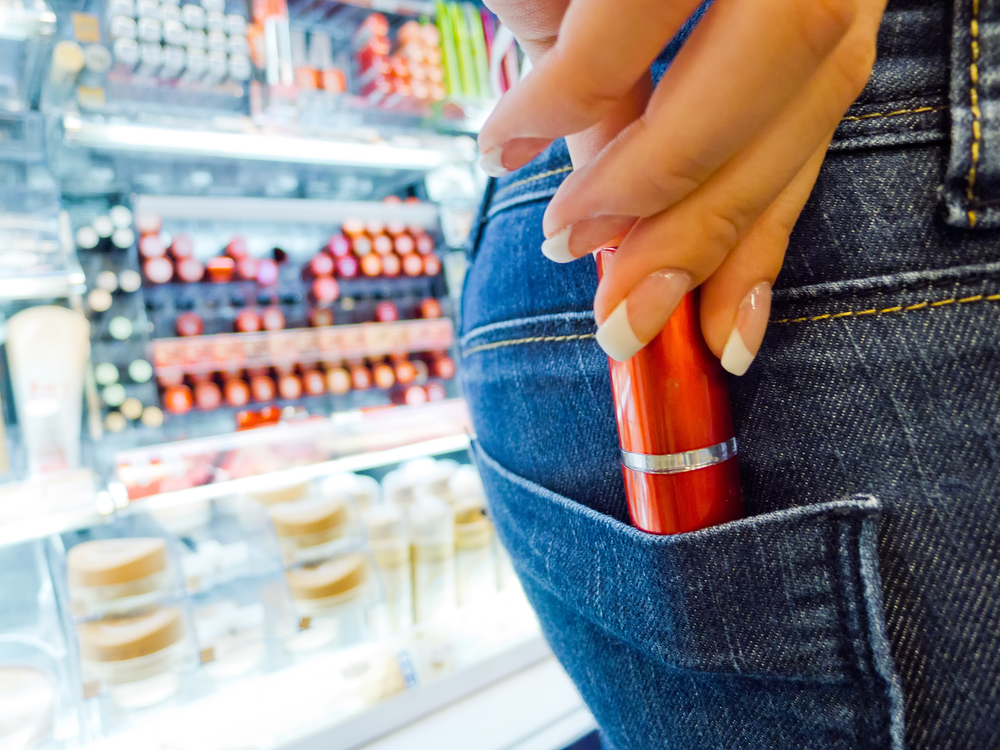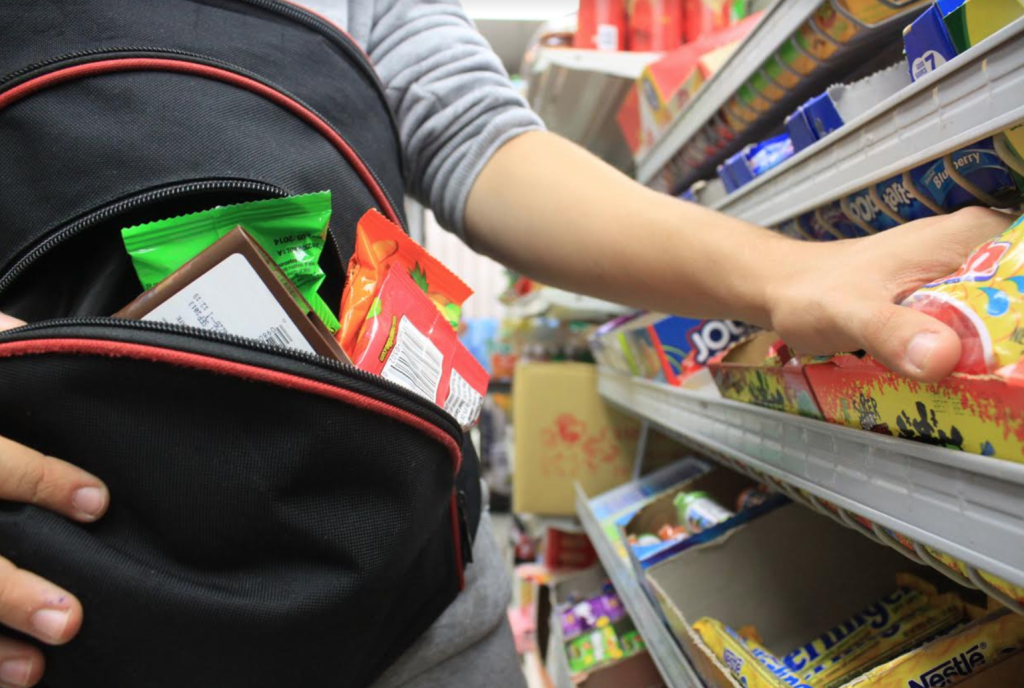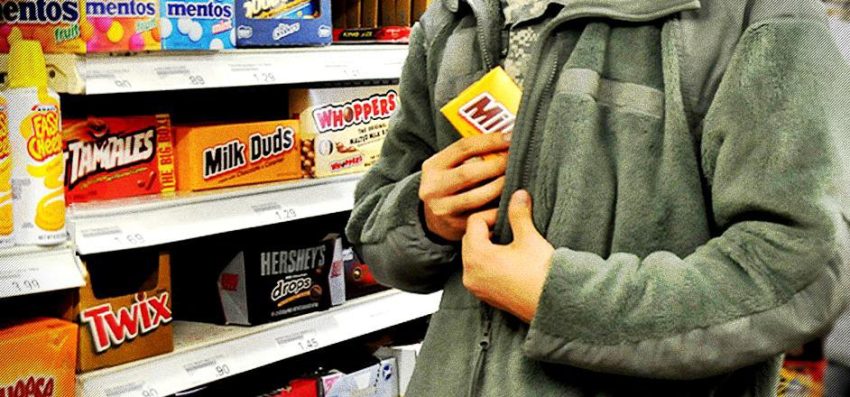Have you ever wondered what happens if you’re caught shoplifting in the UK, especially when it’s all recorded on camera? Well, let’s break it down in simple terms.
Shoplifting is when you take something from a store without paying for it. In the UK, it’s a big no-no, and stores use security cameras to catch people doing it
However, If you’re caught shoplifting on camera in the UK, the legal consequences hinge on the value of the stolen goods. Items worth over £200 may result in charges of theft under the Theft Act 1986, whereas for items valued at less than £200, low-value shoplifting charges under section 176 of the Anti-Social Behaviour, Crime, and Policing Act may apply.
Now, you’ll go through these issues in greater detail in the following lesson.
Consequences of Shoplifting in the UK Caught on Camera

Immediate Consequences:
- If you’re still inside the store when your shoplifting is detected on camera, store security or staff may approach you. They might detain you for further investigation.
- Also, in cases where there is substantial evidence of it, the store may contact the police to report the incident.
Legal Process:
- Upon police arrival, you could be arrested and detained for questioning.
- Law enforcement will conduct interviews, possibly reviewing surveillance footage and collecting evidence related to the shoplifting.
Potential Charges:
- If the evidence supports it, you could be charged with petty theft, which is a criminal violation.
- Furthermore, whenever you are found with stolen items in your possession, you may face penalties for possessing stolen property.
- More importantly, any property or products were harmed during the theft, further criminal damage penalties may be imposed.
Rights of the Accused:
- During questioning, you have the right to stay silent and not incriminate yourself.
- You may also request the presence of a solicitor or legal assistant during police interviews.
In a nutshell, if you’re caught shoplifting on camera, you may be taken to a back room while waiting for the police. Legal consequences could involve charges, court appearances, and possible fines. Shoplifting can result in a criminal record, which can affect future job opportunities and travel.
If you return to the store after being caught, they might ban you temporarily or permanently, depending on how serious the incident was. This ban could even apply to all stores of the same chain or the entire shopping area if it’s a larger complex. So, it’s generally best not to go back to a store from which you’ve shoplifted, as the consequences can be significant and long-lasting.
Legal Outcomes Following Shoplifting on Camera in the UK
When caught shoplifting, the legal consequences can differ based on the circumstances. For first-time offenders or minor infractions, the police may issue a formal warning known as a caution, which doesn’t result in a criminal record but acknowledges the offense. However, it may influence future behavior.
In cases where evidence is substantial, formal charges may follow. This leads to a court appearance, triggering a legal process where individuals can present a defense or plead guilty. If found guilty, fines and penalties, determined by the court and varying with offense severity, may be imposed.
One of the most significant consequences is the potential for a criminal record. A shoplifting conviction can result in a lasting mark, impacting employment prospects, travel opportunities, and various aspects of life. It’s crucial to understand the wide-ranging implications a shoplifting conviction can have on future opportunities.
Prevention and Legal Alternatives to Shoplifting in the UK

Prevention:
Education: Raising awareness about the consequences of shoplifting and its impact on individuals and businesses is crucial. Educational programs in schools and communities can help deter real offenders.
Store Security: Retailers can invest in security measures, such as surveillance cameras, electronic article surveillance (EAS) systems, and trained loss prevention personnel, to deter and detect.
Employee Training: Staff should be trained to recognize signs of potential shoplifting and to handle situations with sensitivity and professionalism.
Shop Layout: It can be designed to minimize blind spots and make it more challenging for them to go unnoticed.
Legal Alternatives:
Community Service: In some cases, they may be offered the option of completing community service or educational programs instead of facing criminal charges.
Restorative Justice: These programs bring offenders, victims, and the community together to repair the harm caused by shoplifting. Offenders may be required to make amends to the victim or community.
Legal Representation: If facing shoplifting charges, it is essential to seek legal counsel. An attorney can help navigate the legal process, explore potential alternatives, and protect your rights.
Counseling and Rehabilitation: Addressing the underlying issues that cause to it, such as addiction or mental health concerns, can be an alternative to punishment. Courts may refer individuals to counseling or rehabilitation programs.
Civil Recovery: Some retailers may pursue civil recovery, which involves seeking compensation for damages caused by shoplifting. This is a civil action separate from criminal charges.
Youth Offender Panels: For young offenders, youth offender panels can provide a non-criminal response to the incidents, focusing on rehabilitation and addressing the causes of the behavior.
FAQs
Why are shoplifters not being prosecuted?
The decrease in prosecutions for shoplifting, particularly for thefts under £200, can be traced back to the Anti-Social Behaviour, Crime, and Policing Act 2014, which treats such offenses as summary offenses. This often results in a penalty notice fine of £70 without the offender having to appear in magistrates’ court. There’s an ongoing debate about this approach, with some advocating for stricter prosecution.
What is the punishment for shoplifting?
Shoplifting in the UK doesn’t automatically lead to imprisonment. For thefts under £200, the maximum sentence is six months in prison, although postal fines are more common. Theft exceeding £200 can result in a maximum sentence of seven years in prison.
What Happens If You Go Back To The Store?
If a store spots you shoplifting on camera and you return, several scenarios may unfold. The store may refuse your entry and issue a formal ban notice. Alternatively, they might request your details to report you to the police or ask you to wait while they call law enforcement. While you’re not obligated to provide personal details, cooperation with police is advised. It’s generally not advisable to return to a store you’ve stolen from.
What Kinds Of Cameras Do Stores Use Today?
Modern stores often use high-quality surveillance cameras that capture clear images. These cameras are more affordable, leading to greater coverage throughout stores, making it challenging for shoplifters to go undetected. Stores may retain footage for extended periods to cross-reference images.
Can You Be Identified From Camera Footage?
Yes, The ability to identify individuals from camera footage depends on various factors, including camera technology, lighting, and position. Many security cameras today can provide clear facial images, even at a distance. Stores may compare footage over time, and staff members might help identify individuals based on clothing or behavior. In most cases, stores can potentially identify people from camera footage.
What If The Store Lets You Go?
Even if you’ve been seen shoplifting on camera and then released by the store, they can still report you to the police later. The store may follow up with you, and a statute of limitations typically applies for at least six months, but potentially longer. It’s crucial to be aware of this possibility and consider legal advice if you think you were seen shoplifting on camera.
Do you get a criminal record for shoplifting in the UK?
A: Yes, in the UK, a shoplifting conviction will result in a criminal record. Even first-time offenders may receive a police caution as an alternative to prosecution, which still results in a criminal record.
Can you get away with shoplifting in the UK?
A: No, Getting away with shoplifting in the UK is not a likely scenario. If you are caught shoplifting, you may end up being arrested and taken into custody
Final Words
In conclusion, being caught shoplifting on camera in the UK can lead to a range of legal consequences, depending on the circumstances and the value of the stolen items. The legal outcomes can range from charges under the Theft Act 1986 to low-value shoplifting charges under the Anti-Social Behaviour, Crime, and Policing Act for items valued at less than £200.
However, there is an ongoing debate about whether all shoplifters caught on camera should be charged, irrespective of the stolen items’ value. This highlights the complex and evolving nature of shoplifting prosecutions in the UK and the importance of considering the role of video evidence in such cases. Shoplifting, even when captured on camera, carries significant legal implications, making it essential for individuals to understand the potential consequences and legal processes involved.

